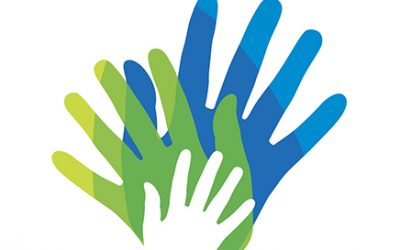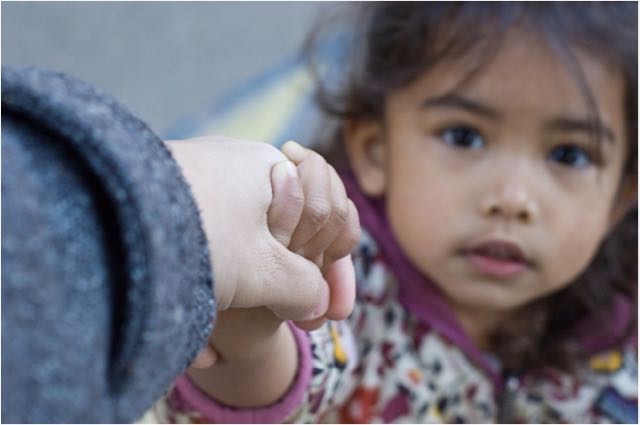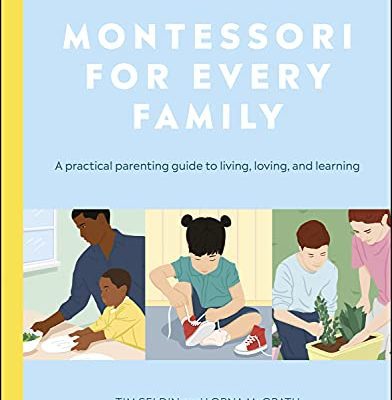Eighty-Five Percent Of The Brain Is Formed By Age Three
The core structure of the brain is formed in the first three years. By age three, the brain has established a pattern of processing information that will be used throughout life. As such, a child’s early experiences affect the quality of his brain architecture, forming the foundation upon which future development rests. Early experiences also have a greater impact on the developing brain because new experiences are stored in relation to previous ones. Because the architecture of the brain is formed between birth and three, children’s early experiences are ingrained at a deeper level and have lasting effects. Many children do not have access to good Montessori schools at this age. Enhancing the home environment with Montessori materials and guidance can help to fulfill and expand a child’s potential.
Environment Shapes Brain Development
While some say the only toy a baby needs is a cardboard box, numerous research studies show that children who grow up in more stimulating environments do better than those who have fewer opportunities to learn. Brain development is activity-dependent, so everything a child touches, tastes, sees, hears, and smells impacts the brain’s circuitry. The environment directly influences the structure of the brain. Exposing babies to a variety of age-appropriate stimuli, meeting their developmental needs, and providing just enough challenge to stretch their skills will lay the best foundation for the future.
Montessori Builds Better Brains
Motor development and cognitive development are fundamentally intertwined. It is for this reason that researchers emphasize the importance of learning through play and that Montessori activities always involve mind, body, and senses. Babies and toddlers learn most when presented with just the right amount of challenge, not so easy that they are bored and not so difficult that they are frustrated. The Montessori birth-to-three materials are thoughtfully designed and timed so that children are repeatedly entering this ideal zone for learning.
For example, at two weeks old, a baby cannot distinguish colors well but can detect light, movement, contrast, and patterns. The Montessori Munari is the ideal first mobile, having a contrasting black and white pattern that captures a baby’s attention, allowing him to distinguish its shapes, practice visual tracking, and build concentration.
The Munari is also designed according to a mathematical formula so that all its components are in proportion. This mathematical relationship appeals to a baby’s innate number sense. Research shows that the strength of an infant’s number sense predicts performance on math activities in preschool. Montessori recognized this sense and called it the “human tendency of the mathematical mind.” A professor at the Duke Institute of Brain Sciences calls it “the conceptual building block upon which mathematical ability is built.” We can support even the youngest baby’s mathematical potential by offering toys that appeal to this innate number sense.
As children get older, the Montessori materials continue to support physical and cognitive development. When a child plays with the Curved Dowel, she strengthens her wrist preparing her hand for writing, sports, and everyday tasks like dressing independently. As she holds the base of the dowel with one hand and uses the other hand to thread the ring, her arm crosses the midline of her body. Crossing the midline, the ability to move her hands and eyes together, across and to the other side of her body, is important for her development. It helps her integrate sensory feedback across brain hemispheres and enhances bilateral coordination (using the two sides of her body together). Crossing the midline is also a prerequisite for lateralization, or the process of one eye, hand, foot, and ear becoming dominant. Lateralization allows a child to function at her most efficient level.
Guiding Parents
Unfortunately, parents are left guessing how to create a stimulating environment during the formative years of birth to three. Monti KidsTM gives parents access to world-renowned Montessori materials along with simple guidance. We provide customers with recurring home deliveries of Montessori educational toys and an online curriculum for parents, tailored to their child’s stage of development.
Learn more at www.montikids.com
Tomorrow’s Child/Sept 2017






